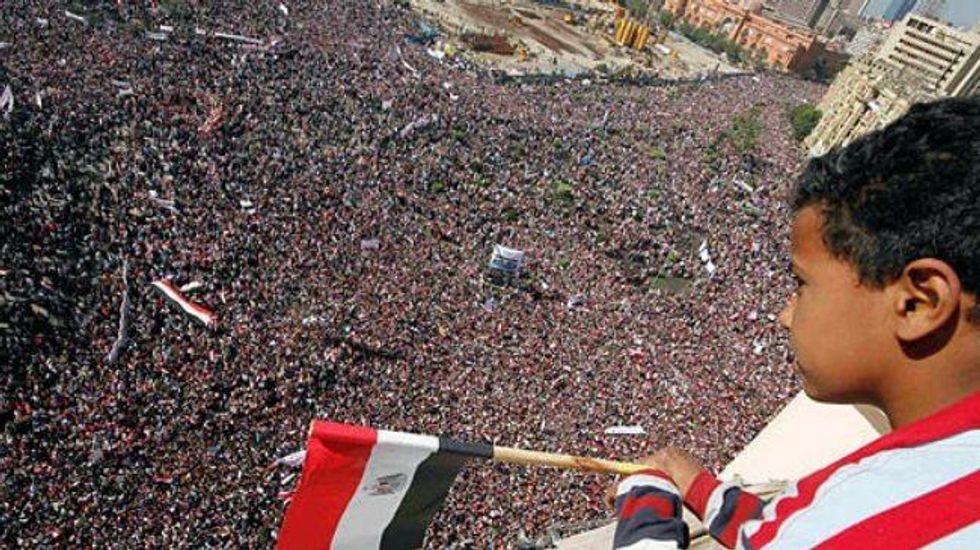This spring, I participated in the grass-roots "Tamarod" campaign organized to protest the government of Egyptian President Mohamed Morsi. My group, the April 6 Youth Movement, collected more than 2 million signatures from people seeking to withdraw confidence in Morsi and calling for early presidential elections. I also took part in the June 30 protests of the regime and in most of the activities of the new revolutionary wave. And why not? Morsi and his government failed to serve the people. We gave them our confidence and support, and all we received in return was a coup against the goals of the revolution and a reproduction of Hosni Mubarak's policies.
While in power, Morsi and the Muslim Brotherhood made countless mistakes that angered the public and encouraged people to work toward their removal. For that reason, it is difficult to sympathize with them now, especially because they have instigated violence and exhibited consistent stubbornness. Even today, as we seek moderate solutions and engagement with the Brotherhood, we find no willingness on their part to admit to any mistakes or negotiate moderate solutions. They continue to stipulate that Morsi must be reinstated as president before negotiations can take place, despite the fact that few outside the Brotherhood would accept that condition under any circumstances.
There are, however, reasons for serious concern with the actions of the Egyptian military. Our support for the transitional road map to new elections was predicated on the military's pledge that it would not interfere in Egypt's political life. The expanding role of the military in the political process that we are nonetheless witnessing is disconcerting.
The escalation in hateful rhetoric in the media by liberals against Morsi supporters and by Morsi supporters against liberals also concerns me a great deal. Rhetoric that encourages the extermination of a whole political faction or calls for imprisonment of its members, regardless of their views, is wholly unacceptable. We refused to treat members of Mubarak's regime this way after they were ousted from power. How can we support such treatment of the Brotherhood now?
Moreover, I cannot accept that, once again, the government is exerting control over the media on the pretext of the war on terror. Based on my previous experiences with the military -- I was arrested and beaten for my activism in 2008 -- I cannot help but fear that I may be accused of terrorism if I criticize the new regime.
No one can defend the mistakes committed by Morsi or the Brotherhood. But is it not my right to question, with great concern, the deaths of more than 100 Morsi supporters, many of them by bullets to the head and chest?
Despite my support for the June 30 revolutionary wave, and despite the fact that it was a people's movement before it was a military intervention, I now see much to fear. I fear the insurrection against the principles of the Jan. 25 revolution, the continued trampling of human rights and the expansion of restrictive measures in the name of the war on terror -- lest any opponent of the authorities be branded a terrorist.

 This spring, I participated in the grass-roots "Tamarod" campaign organized to protest the government of Egyptian President Mohamed Morsi. My group, the April 6 Youth Movement, collected more than 2 million signatures from people seeking to withdraw confidence in Morsi and calling for early presidential elections.
This spring, I participated in the grass-roots "Tamarod" campaign organized to protest the government of Egyptian President Mohamed Morsi. My group, the April 6 Youth Movement, collected more than 2 million signatures from people seeking to withdraw confidence in Morsi and calling for early presidential elections.